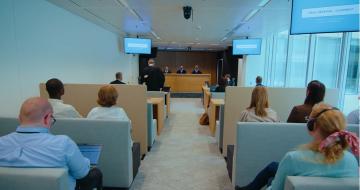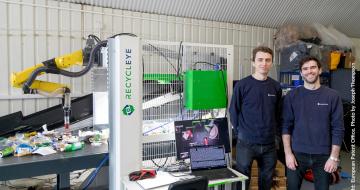Table of Contents
The law recognizes exclusive rights for " producers of phonograms " and " producers of first fixations of film ". This neighboring right enjoyed by producers relates to the records and films they produce.
Please note ! Only producers who have made the first fixation of a film or sounds have a neighboring right to this first recording. The person who would recover, for example, a soundtrack of a music to make a fixation on CD will not have any neighboring rights on this second recording. Only the producer of the original soundtrack has a neighboring producer right.
These producers' related rights are distinct from any copyright on the sound (songs for example) or the film for which the producer makes the recording. There will therefore be several rights on the same disc : the copyright of the composer of the music, the copyright of the lyricist, the neighboring right of performers, singers or musicians, as well as the neighboring right of the producer of the disc.
The law grants related rights to producers because they support the cost of producing a sound or audiovisual work. They make or contract the making of the initial recording from which copies will be made, they then manage the distribution, marketing, etc. network. All these activities requiring a significant investment, the producers must be able to reserve the exploitation of them, failing which it is not certain that there would be candidates ready to take the risk of producing a work.
What does the related right of producers cover ?
A phonogram is the first fixation, the mother tape or the master which is made of a sound, that is to say the first recording of a sound, such as music, song, vocals or even noises (birdsong, sounds of nature).
A first fixation of a film is the first recording made of an animated sequence of images. Therefore, it can be the first master of a movie, a documentary, a cartoon, or any other sequence of images.
Who can benefit from producers' related right ?
The producer is the natural or legal person who assumes the financing and responsibility for the realization of the first fixation of sounds (mother tape).
The notion of the producer of the first fixation of a film is similar. It is a natural or legal person that is responsible for the first fixation of an audiovisual work or an audiovisual sequence even if it is not protected by copyright (television show, images of sport competitions, etc.).
Which are the prerogatives of the producers ?
Economic rights of producers
Producers' related rights allow them to protect the investment made producing the master.
They have the right to exploit the fixation made of a music, a documentary, a film, etc. The main rights they have in this regard are the right to reproduce and the right to communicate the recording made to the public.
Right of reproduction
Authorization from the phonogram or film producer is required in order to reproduce the disc or the film. This right allows him to control the use that will be made of it by making copies produced at the start of the recording made, and intended for distribution to the public. Authorization must therefore be obtained from the producer to distribute physical or digital copies, even free of charge.
More generally, any reproduction of the recording by a producer is subject to its authorisation. This is true regardless of the technique used, whether the reproduction is made on CDs, DVDs, as digital files, or otherwise.
All the types of copies are aimed by the reproduction right: final or temporary copies, whole or partial copies, copies made for resale or transmitted free, copies made for a third or oneself (except for private copy and other exceptions included in book XI, title 5 of the CEL).
Right of communication to the public
The right of communication to the public is the right under which communication to the public of the fixation made is the responsibility of the producer who made it.
The producer's authorization is therefore necessary to make public use of the recording he has made, such as showing a film in front of an audience or broadcasting it over the Internet, for example.
However, there are two important cases where such authorisation is not required :
- the communication of the phonogram or film fixation in a public place when it is not used in a performance and if access to the place is free and
- the broadcasting of the phonogram or the fixation of a film.
Nevertheless, in this case, remuneration is received for the phonogram's producer.
Lending and rental right
The producers' authorisation is required to lend or rent a film or music for which it produced the original recording.
Right of distribution
The producers' authorisation is required to distribute material copies of a phonogram or a film.
Moral rights of producers
Producers of phonograms and films do not benefit from any moral rights, unlike authors or performers.
Rights to the remuneration of producers
Besides the right to authorize or prohibit certain acts with regard to the discs and films of which they have made the original recording, producers of phonograms and films benefit from certain rights to remuneration. In these cases, performers cannot prohibit specific uses of their performances, but, in return, have a right to remuneration (as defined by law).
See also : “ Exceptions to the related rights ”


